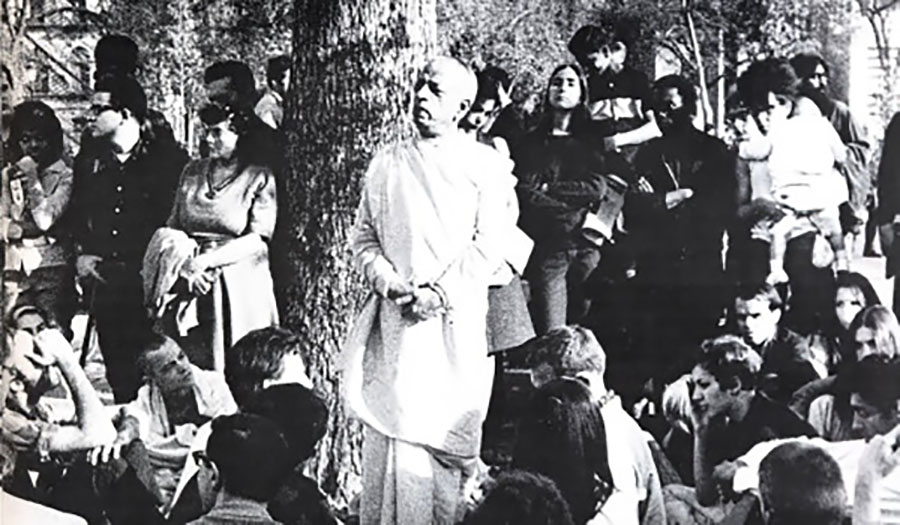ISKCON 50 Meditations: May 10, 2016
By Satsvarupa dasa Goswami | Май 10, 2016

Swamiji Defeats Mayavadi Annihilation
We were in Swamiji’s room discussing an article that appeared in the New York Times. Brahmananda brought it into Swamiji, and I was also present. The Times writer was discussing Hinduism, and he used the phrase, “The frightening goal of annihilation.” When Prabhupada heard this, he said this was misinformation. Then he began to dictate a letter, which Brahmananda wrote down, to be sent to the New York Times.
Эта Times writer thought that the goal of Hinduism was an impersonal experience of merging into the void of Brahman. It was frightening for him to think that one would lose one’s individuality. Swamiji quoted from the "Бхагавад-гита" 2.11, “Never was there a time when I did not exist, nor you nor all these kings, nor in the future shall we ever cease to exist.” He asserted that the goal of “Hinduism” was not impersonalism but Krishna consciousness.
I was hearing it for the first time and I was impressed. I did not exactly know what the New York Times reporter meant, or what Prabhupada was saying, but it began to dawn on me. I agreed with the Times writer that merging was a frightening idea. You would practice some meditation and it would be very dangerous, because all of a sudden you would lose yourself. The Hindu philosophy was therefore very dangerous, because if it was followed, it could lead to everyone’s annihilation!
But Swamiji said that the impersonal merging was a misrepresentation of Hindu philosophy. I was surprised to learn that a respectable writer for the New York Times had given misinformation about Hinduism. The true information was right there in the "Бхагавад-гита": we do not get annihilated; we are eternal.
I was not yet a devotee; I was outside this controversy, observing it. But when I heard Swamiji’s correction, I wanted to tell other people how he understood it. I liked what he said. It was authoritative. It was also very agreeable, compared with the frightening annihilation.
Srila Prabhupada was disturbed that the Times had printed such a wrong statement, and so he wrote them a letter. Brahmananda and I could see that Swamiji really wanted to combat ignorance, even if it appeared in high places. It seemed like a hopeless struggle for Swamiji to expect to wipe out all the ignorance in the world. He did not have any government power behind him, and although he was speaking the truth from the "Бхагавад-гита", his letter would probably not be published by the New York Times. But at least two persons heard and felt themselves freed from ignorance and annihilation.















